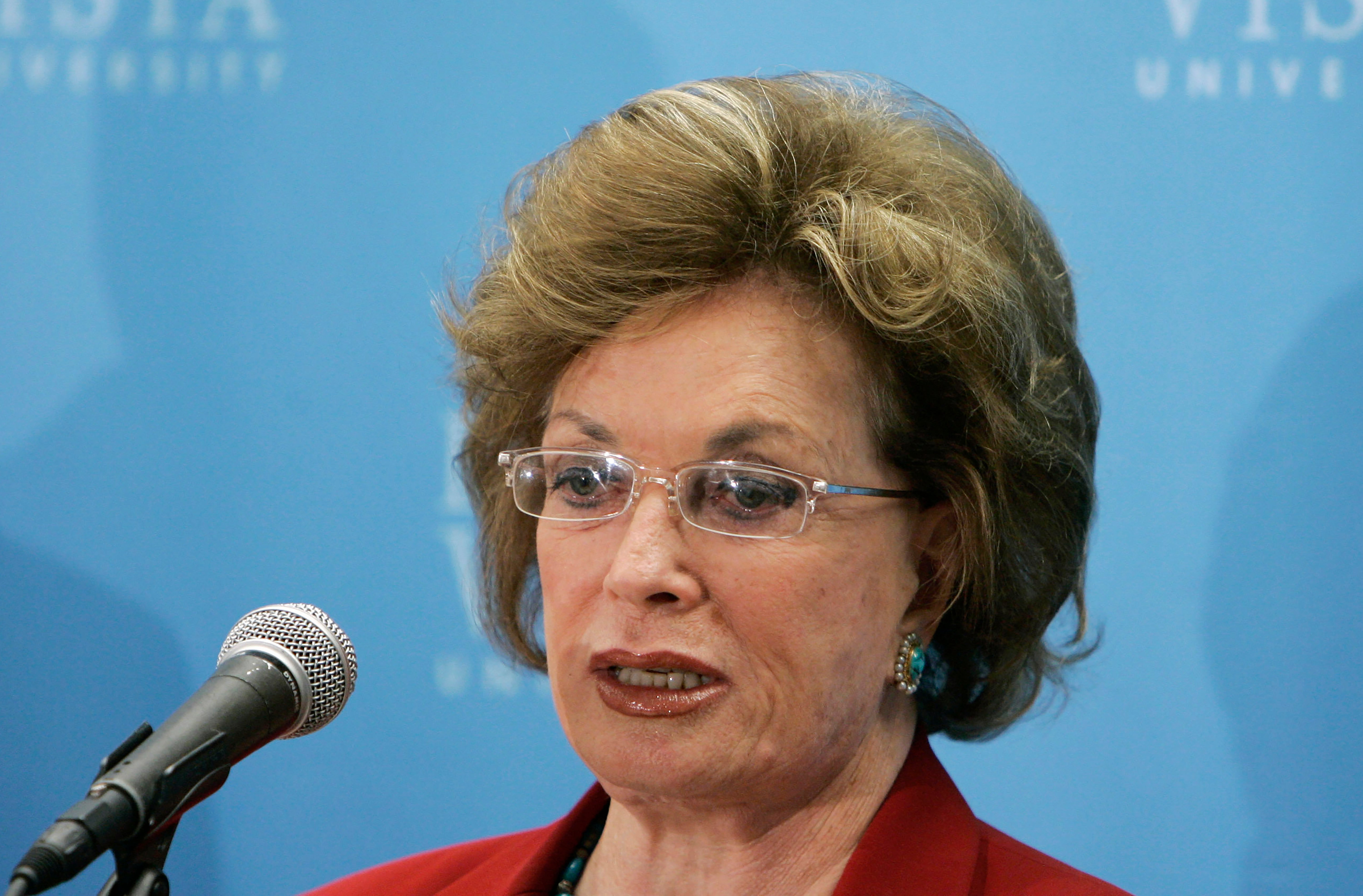Widow of former Egyptian President Anwar Sadat dies in Egypt
Jehan Sadat, widow of former Egyptian President Anwar Sadat, the first Arab leader to make peace with Israel, has died

Jehan Sadat, widow of former Egyptian President Anwar Sadat the first Arab leader to make peace with Israel, died in Egypt on Friday. She was 87.
In recent weeks, the Egyptian press reported that Sadat had been in an Egyptian hospital and battling cancer. Last year, she received medical treatment in the United States but shortly after she returned home, and her condition had deteriorated, her family told Egyptian media. No further details about her illness were made available.
On Friday, President Abdel Fattah el-Sissi's office said she had been a role model for Egyptian women, and granted her a national award posthumously. They also announced the naming of a key highway in Cairo after her.
In August 1933, Jehan Safwat Raouf was born in Cairo to an Egyptian middle-class father and a British mother. In 1949, she married Anwar Sadat, a military officer at the time who later on served as Egypt's president from 1970 until his assassination in 1981. The couple had four children, daughters Noha, Gihan, Lobna and a son, Gamal.
Sadat had consistently defended her husband’s decision to sign a peace agreement with Israel in 1979 after nearly three decades of war— a move that was controversial domestically and regionally.
During her husband’s tenure, Sadat established herself as a staunch advocate of women’s rights by pushing for a set of laws that granted women the right to alimony and custody of children in the case of divorce. She also made headlines with her volunteer work and charitable activities. Her high visibility in the 1970s drew criticism from observers who accused her of exploiting her husband’s position to gain political leverage for herself.
In 1977, Sadat graduated with an BA in Arabic literature from Cairo University. In 1986, she completed her PhD in comparative literature at the same university.
She authored two books: her autobiography “A Woman OF Egypt” and “My Hope for Peace,” about the Arab-Israeli conflict and the rise of Islamic extremism.
Subscribe to Independent Premium to bookmark this article
Want to bookmark your favourite articles and stories to read or reference later? Start your Independent Premium subscription today.
